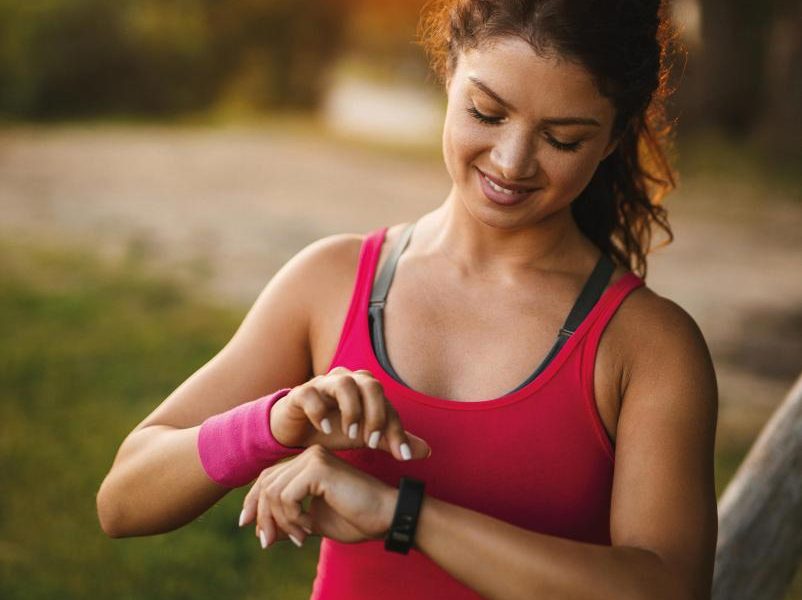Whether it’s a running sesh, a yoga class or simply playing with your kids – here’s the latest news and views on how to move more this month
Snoozing my alarm for the third (or was it fourth?) time, my phone buzzed furiously with a notification. The bold words: ‘Your friend has completed a workout!’ flashed across my screen. Usually, I would have clicked through to ‘like’ my friend’s workout or sent her a message congratulating her on her pace. But this time it just made me feel miserable. Here I was, tangled in my bed sheets, eyes still puffy and minutes away from logging on to my work station at 9am. Meanwhile, my friend had already managed to complete a half marathon. I knew that my mood for the rest of the day would be low – I’d berate myself for not getting up early to exercise or make ridiculous excuses because of one notification from a fitness app. But this feeling is not uncommon.
Picking up the pace
Lately, especially since the strict measures put in place due to the coronavirus pandemic, I’ve felt the pressure to join the bigger, better running apps – and, quite frankly, I’m terrified. All of a sudden my social media has been filled with screenshots of wiggly red lines and countless virtual achievements. Like Instagram, these apps are a constant stream of success, scoring you on your fitness or pace with rigorous attention to detail – even taking in factors like elevation and the amount of calories burned. They can also place you on a virtual ‘leaderboard’ by comparing your time on a specific route with complete strangers who run in the same locations – a live feed of exercise fuelling my burning fire of anxiety.
Unhealthy competition
I’ve never been one for meticulously measuring time, distance or frequency when it comes to my workouts. By joining these apps, I’m worried I’ll be compared to other friends my age. I worry that I’ll be transported back to that ‘last girl’ picked for netball after everyone else because of my weight. Don’t get me wrong, my running tracker has been a constant in my fitness regime since the beginning. I’ve been running for years, and though I’m nowhere near marathon-level, I know that it helps clear my head and keeps me focused. Demons hate fresh air, as they say. It has helped me pace myself properly for that first lap around the field and pinpointed how far I’ve managed to get through my run before I start to struggle and feel the burn. I have one follower on my fitness app who, while amazing me with her marathon training, also helps to spur me on to try and match and do better. She encourages me to train harder and for longer, even though my workout often pales in comparison with hers. Sometimes, when I see she’s been on a run, I’ll start to feel competitive and I’ll force myself to pound the pavements, even when I’m not feeling like it. But that’s fine. It’s all about healthy competition, right? Well, when you look at the research, it looks like that train of thought is slowly unravelling.
Chasing likes
There’s increasing evidence to show that using fitness apps and trackers can become toxic and even detrimental to our mental health. In a recent study of 272 cyclists, conducted by the National University of Ireland in Galway, research found that although ‘gamified’ virtual awards can help encourage users on their fitness journey, it can also be a double-edged sword and spark unhealthy, obsessive tendencies that make us feel low.
“Fitness app social features that promote self-recognition, such as posting only positive workout data or photos, can be linked to maladaptive – a trait more harmful than helpful – perceptions of exercise and even burnout,” says Dr Eoin Whelan, a senior lecturer in business information systems at the JE Cairnes School of Business and Economics. And Sanjay Patel, founder of London fitness studio, The Tone Room, agrees. “If you’re goal-orientated, seeing the progress you make on your tracker can motivate you to keep up your exercise or even join friends on fitness events. Knowing someone is counting on you to go for a run or following up on your workouts brings a high level of accountability to what you’re doing,” he says. “On the downside though, if you are at different fitness levels, it can be off-putting training with someone much fitter, and could lead to you becoming demotivated or not enjoying that particular type of exercise at all.”
Log off
The good news is that, when used appropriately – and accepting that every person on every app has their own limits – tracking your fitness can result in reaching personal goals, improving your self-esteem and boosting your self-worth. In a recent study conducted by consumer sports and leisure company, Better, 53 percent of the 2,000 people interviewed about their usage of running trackers said they were exercising more frequently and consistently, citing increased motivation as a result of using one.
“Generally speaking, making progress boosts our mental health, and being able to see it in the data provided by our fitness watches certainly gives us a warm feeling,” says Lee Chambers, environmental psychologist and wellbeing consultant. “Acceptance is also vital to our mental health. We cannot perform at our peak every day and the only person you’re ever exercising against is yourself, so celebrate those small wins, remember that it is during rest and recovery that you grow, and be grateful that you have the mobility and freedom to be active.”
So next time competitiveness starts getting the better of you, take a break from social media, switch your profile to private, or just delete the app on your phone. It’s your fitness journey, so learn to take it on your own terms, at your own pace.




















